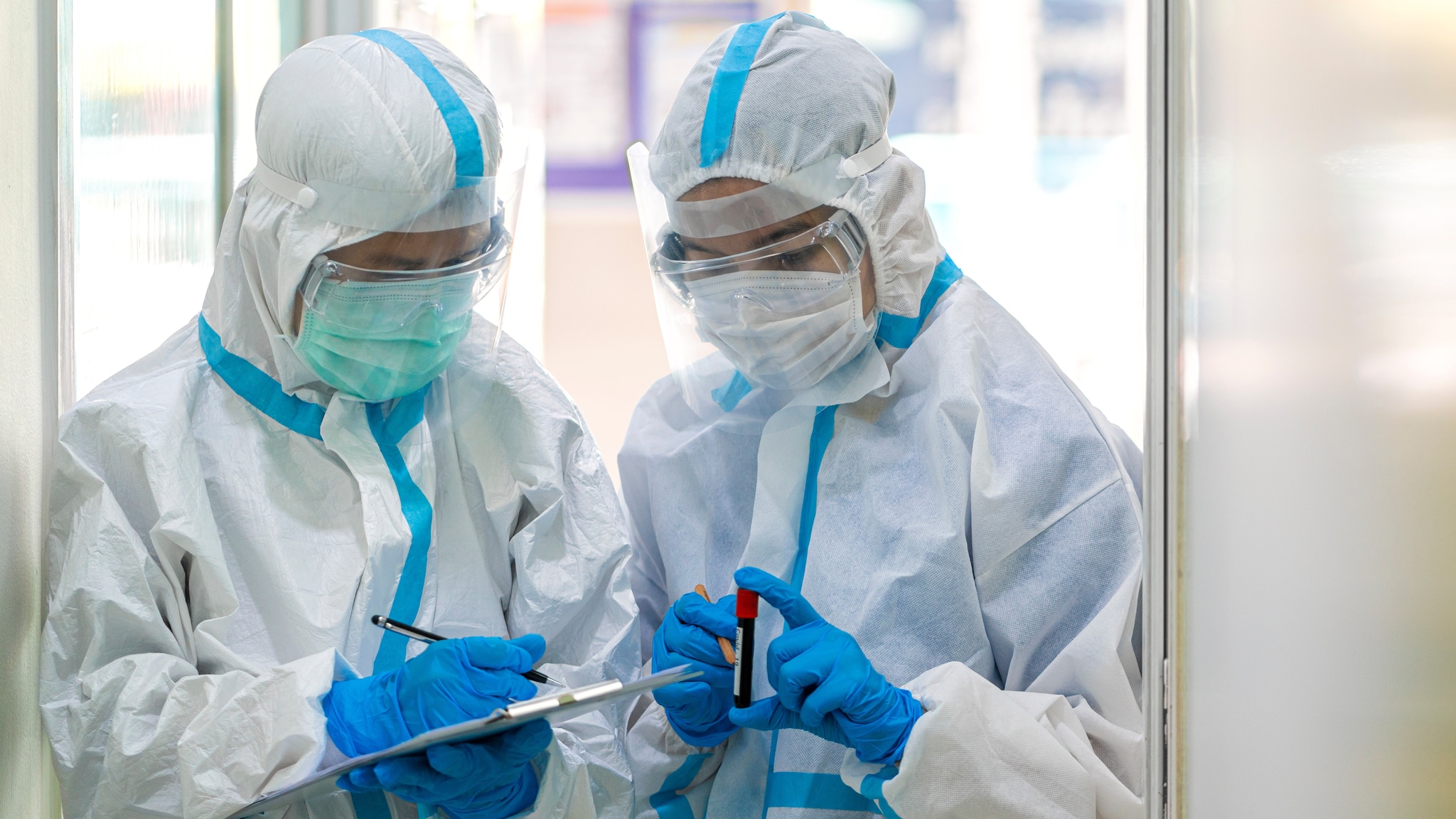At a glance
Disease outbreaks can spread quickly across the world, resulting in deaths, illness, and economic turmoil. In response to these challenges, CDC’s Division of Global Health Protection (DGHP) is strengthening health systems and helping countries prepare for public health emergencies to create a safer world and safer America.

Why It Matters

DGHP's Critical Role in Global Health Security
Disease knows no borders. In as little as 36 hours, a pathogen can spread to every major city across six continents, including here in the U.S.
When disease outbreaks spread unchecked, the consequences worldwide can be devastating, including the loss of millions of lives and widespread illness. Beyond the human cost, they can wreak havoc on the global economy, disrupting entire industries and markets, impacting jobs, and creating economic instability worldwide.
The COVID-19 pandemic showed the world how a health threat anywhere can become a health threat everywhere. It is crucial to recognize that COVID-19 will not be the last pandemic we face. How well we face and address the next public health emergency will depend largely on what we do today to be better prepared to prevent, detect, and respond to health threats.
Who We Are
To protect the health and safety of Americans and communities worldwide, CDC's Division of Global Health Protection is on the ground in more than 40 countries, working with local partners to help speed their response to health emergencies, expand and strengthen laboratory and surveillance networks, and enhance critical public health workforce capacities.
What We Do
CDC global experts are committed to helping protect lives and livelihoods, investigating and fighting disease spread, and investing in everyone's health. As the lead for CDC's global health security work, the Division of Global Health Protection and its experts work alongside National Public Health Institutes (NPHIs), Ministries of Health, and other ministries to advance progress in core capabilities that are essential for countries to respond effectively to public health emergencies and advance global health security:
Surveillance - enhancing and expanding surveillance systems using innovative approaches and technologies.
Laboratories - providing technical assistance, training, and cutting-edge approaches to help nations respond effectively to public health threats
Emergency Outbreak Response - collaborating with country partners to ensure they are well-equipped to respond to disease threats wherever they may arise.
Workforce Development - building a skilled and resilient public health workforce to address emerging health challenges across the globe.
